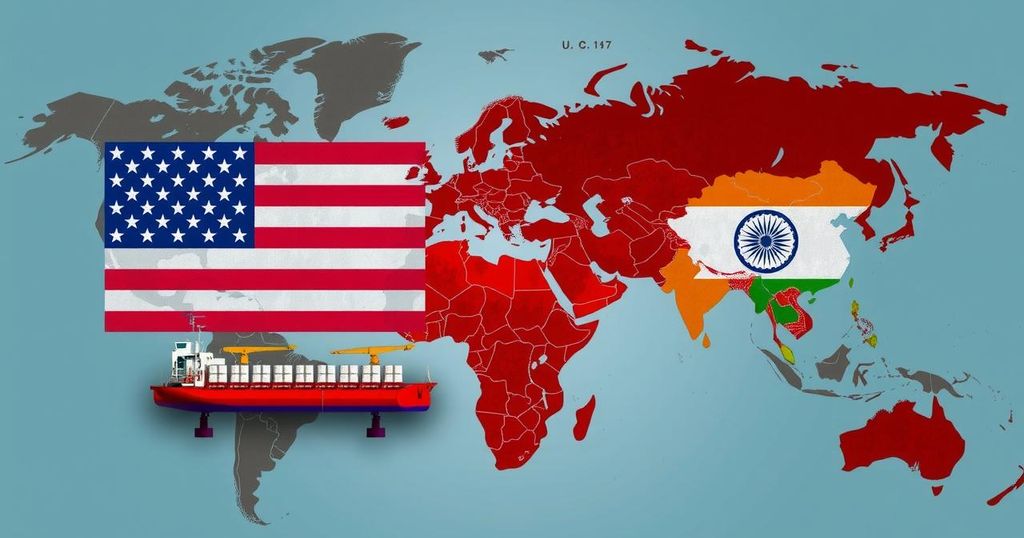U.S. Sanctions on Russian Oil Producers Shift Trade Dynamics for Asia
The U.S. has imposed stringent sanctions against Russian oil producers and vessels, aiming to disturb Moscow’s oil revenue as it continues its military efforts in Ukraine. This has compelled major buyers, particularly China and India, to source oil from other regions like the Middle East and Africa, which is anticipated to drive up global oil prices and affect supply chains. Analysts predict substantial reductions in Russian oil exports due to these measures.
Tougher U.S. sanctions are poised to significantly alter the dynamics of oil trade between Russia and its largest customers, China and India. The U.S. Treasury has recently imposed sanctions on Russian oil producers Gazprom Neft and Surgutneftegas, along with 183 vessels that facilitated Russian oil shipments. This measure aims to diminish the revenue streams utilized by Moscow in its ongoing conflict in Ukraine, compelling refiners in China and India to pivot towards alternative oil sources from the Middle East, Africa, and the Americas, thus escalating oil prices and freight costs.
The sanctions are expected to drastically impact Russian oil exports, leading to refiners in China reducing their output. Analysts report that the designated vessels were critical in shipping approximately 900,000 barrels per day of Russian crude to China over the previous year, leaving those figures to plummet. As a direct consequence, global oil prices surged as concerns over supply disruptions intensified, with Brent crude reaching over $81 per barrel.
Among the newly sanctioned vessels are 143 oil tankers that collectively transported over 530 million barrels of Russian crude, which accounted for about 42% of Russia’s seaborne exports. As traders expect stringent enforcement of sanctions, there is speculation that Russia may alter its pricing strategy in a bid to maintain its oil trade operations.
Consequently, oil markets are experiencing a ripple effect, with rising demand for Middle Eastern and other foreign oil sources leading to increased prices. Indian refiners have indicated a necessity to shift focus towards securing oil from compliant markets as Russian supplies tighten. Analysts foresee heightened competition for oil supplies as refiners scramble to adapt to the changing landscape imposed by the sanctions, reinforcing the likelihood of more significant bids in the Middle Eastern oil market moving forward.
The imposition of tougher U.S. sanctions on Russian oil producers and associated vessels comes as part of broader Western efforts to curtail funding for Russia amid its military actions in Ukraine. Following the establishment of price caps by the Group of Seven in 2022, the trade of Russian oil has notably shifted from European destinations to Asian markets, particularly China and India. This strategic pivot has made these two nations some of the largest consumers of Russian crude, notwithstanding the associated risks stemming from potential sanctions. The newly announced sanctions could precipitate a formidable disruption in the flow of Russian oil, requiring China and India to seek alternative suppliers, thereby influencing global oil prices and market dynamics.
In conclusion, the latest U.S. sanctions against Russian oil producers are set to have profound implications for the global oil market, particularly affecting China’s and India’s oil procurement strategies. With Russian oil supplies curtailed, these nations are likely to increase imports from other regions, leading to a rise in oil prices and changes in freight costs. The shifts in supply dynamics underscore how geopolitical actions can significantly influence market behavior and pricing mechanisms in the oil industry.
Original Source: www.euractiv.com








Post Comment